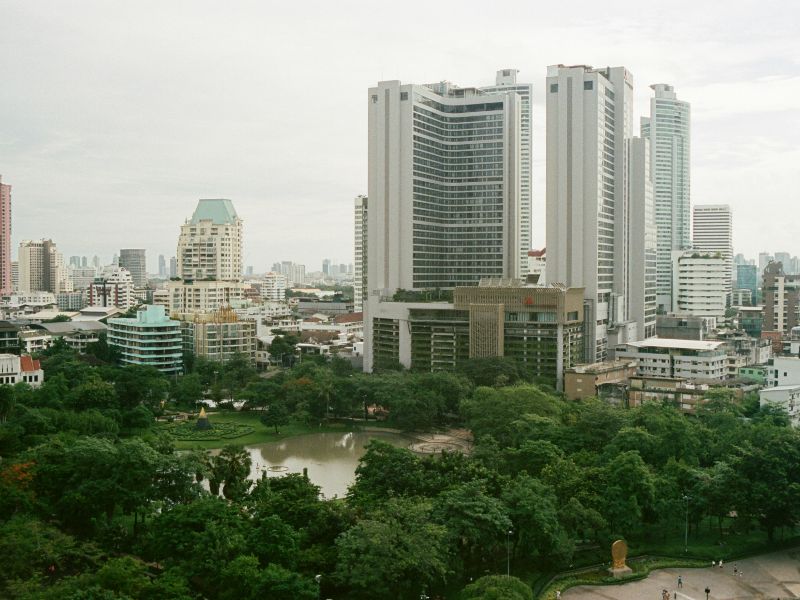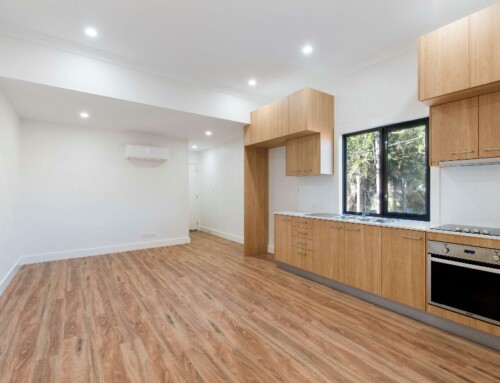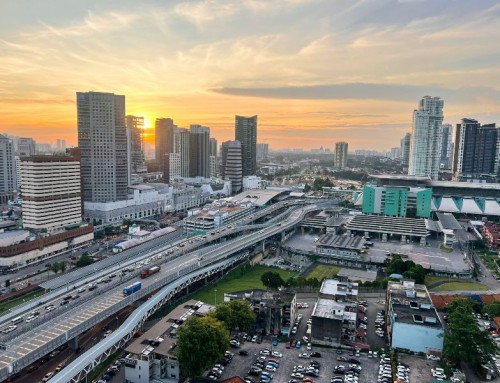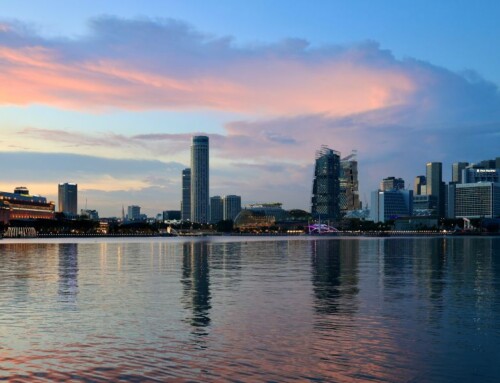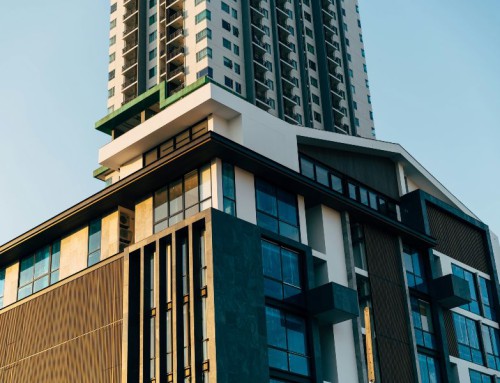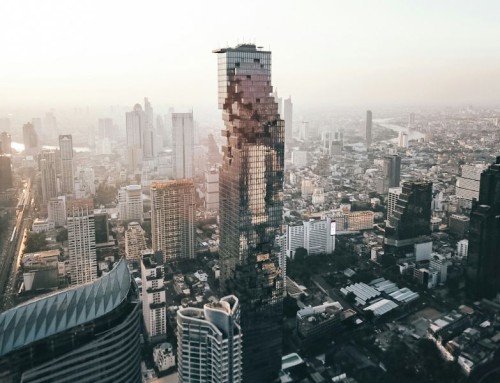Thailand, namely Bangkok, is one of the best places in the world to retire. It has excellent healthcare, a low cost of living and a general attitude that is welcoming of foreigners. While many may want to retire in Bangkok, many are not familiar with the various visas available and which of the various visas will be best suited to their retirement needs.
The best visa for most would be the Long Term Resident Visa
This requires a proper understanding of the tax code in Thailand to know why I made that statement. When you are in your retirement years, one of the considerations has to be capital preservation. There were changes in the interpretation of the Thai tax code recently. The major change would be that a Thai tax resident’s income derived from employment or business from abroad or from assets located abroad is subject to tax when this income is brought back into Thailand. An individual is a Thai tax resident if he or she is physically located in Thailand for more than 180 days. So long as that individual is in Thailand at any point of the day, that will be considered as one day that he or she is physically located in Thailand. For example, if an individual leaves Thailand at 1201 am, then that person will be deemed to be in Thailand for that day even though he or she is in Thailand for a minute. This is the same if that individual lands in Thailand at 1159 pm. Even though that individual is in Thailand for one minute of that day, that will be considered as one day that he or she is physically in Thailand. This is why we never advise clients to leave it to the very last day to leave Thailand to not reach the 180-day limit.
An example of this affecting a foreigner who is a Thai resident would be a Singaporean who realised capital gains on investment and would like to bring those monies into Thailand. In Singapore, capital gains are not taxed. However, the Thai tax code will tax capital gains and starting from 1st January 2024, capital gains from abroad that are brought into Thailand by a tax resident will be taxed. The Singaporean who is residing in Thailand because he is a retiree and has moved to Thailand to retire would be affected by this. If he had remained in Singapore, he would not have to pay capital gains tax on his Singapore investment gain. However, now he would have to pay capital gains tax in Thailand on his Singapore investment gain. It would not be ideal for him to leave the money outside of Thailand because he is living in Thailand. He needs to use this money for his retirement.
There is, however, a visa that provides for an income tax exemption for income derived from employment or business from abroad or from assets located abroad when this income is brought back into Thailand. This is the Long Term Resident Visa and the three categories under this visa which qualify for this exemption are Wealthy Global Individual, Wealthy Pensioner and Work from Thailand Professional.
Retirees or wealthy individuals will likely bring their money from their home country into Thailand. Also, it is difficult for a retiree to bring all their money into Thailand before becoming a tax resident (and hence subjecting themselves to the Thai tax code). This is because there might be retirees who may want to try retiring in Thailand for a year or so before committing to the country long-term. Hence retirees usually have investments outside of Thailand. By the time they choose to liquidate their investments and move their monies into Thailand, they would have already become Thai tax residents and would be subject to the Thai tax code. Therefore, with the advent of the Long Term Resident Visa, a foreigner who can qualify for it should apply under this scheme rather than the usual retirement visa. This also puts paid to the Thai Elite Visa, although I do suspect that amendments will be made to that visa to put it in line with what the Long Term Resident Visa offers.
The best medical facilities are in Bangkok
While Thailand offers many retirement cities, the best medical facilities are still in Bangkok. In fact, in a recent Newsweek ranking of the best hospitals in Thailand, the top 17 hospitals are all located in Bangkok. While it is still possible to live outside of Bangkok and travel to Bangkok as and when medical treatment is required, most retirees will choose to live in Bangkok for ease of access to these medical facilities.

This is an important consideration when investing in Thai property as medical tourism is huge for the country. Be it for rent or sale, properties in Bangkok will always avail themselves to a class of individuals who want to use these properties as a place to live while they seek medical treatment within the kingdom. Bumrungrad International Hospital is listed within the world’s best hospital list by Newsweek. This hospital is located in the Nana and Asoke area and is one of the reasons why properties in that area have a steady demand from tenants. If you have never been to a top-class medical facility, I implore you to do a full body medical checkup at Bumrungrad International Hospital to understand the standard of medical care in Bangkok. It is a very cost-effective way to get a full body check-up at a world-class medical facility. When you are there, you can observe the number of foreigners who are patronising the hospital for medical services.
Immovable property in Thailand has to be dealt with with a Thai will
The concept of lex situs applies to immovable property. The law of the land will deal with the immovable property that sits on that land. If you are looking to acquire property in Thailand, do note that you will need to do up a will in Thailand to deal with the distribution of that property upon your demise. For example, a Japanese cannot will his Thai property in his Japanese will. He will need to do a separate will in Thailand to deal with his Thai property. If there is no Thai will done, the property will be distributed in accordance with Thai intestate succession laws. Retirees who purchase Thai properties need to make a Thai will. On top of that, if retirees decide to spend their final days in Thailand, upon their demise, they will need assistance with executing their will as such matters will need to be dealt in Thailand.
This is where they should have points of contact in Thailand who are familiar with not only dealing with Thai wills but who are also familiar with dealing with Thai properties. In most cases, the property management company should be able to deal with these matters for their clients. A property management company is usually engaged when the owner of the Thai property is not residing in Thailand and would need someone in Thailand to manage and deal with property related matters. The property management company should be notified as to the existence of the will and its contents. A good property management company would assist the deceased’s beneficiaries with the transfer of the property to his or her name. Therefore, it is important that the Thai property owner not only does a will, he or she informs the property management of the existence of the will and its contents.
It becomes a bit more tricky when the property owner is residing in the property that he or she purchases. This is the case with most retirees. Therefore, there is little to no communication with a property agent if the property owner is residing in his or her own property. This is different when a property is being rented out and there are renewals and rental payments. There is often constant communication between the property owner and the property management company. Retirees who live in their properties do not have this communication. The best thing they can do is to inform someone that they can trust to handle their matters when they pass on.
Tax matters
In just about every visa application, the applicant needs to produce a police certificate to state that the individual has not been convicted of an offence in Thailand. Tax offences are still offences. Therefore, one of the ways in which a foreigner can be convicted of an offence is to breach the Thai tax code.
There are broadly two categories of taxes. Personal income taxes and corporate taxes. If the Thai tax resident owns a property, then he or she will need to pay property taxes. Do note that if an individual is collecting rental income from his property, that is classified as personal income if the property is under his or her personal name. If the property is held by a Thai company, then that Thai company will need to include that rental income as corporate income taxes. Property taxes are taxes that are paid because an individual is holding a property. This tax needs to be paid irregardless of whether the property is rented out or not. It is paid because the property is being held by an individual or a company.
It is important to have a proper tax advisor or at least a property management company that can help you with such tax filing related matters.
Reporting
Despite obtaining the relevant visa that allows an individual to reside in Thailand, he or she needs to adhere to the reporting requirements. These are the requirements for an individual to report to the relevant immigration offices. The visa holder needs to do this reporting to maintain the relevant visa. There are immigration specialist companies that will aid the visa holder to do the reporting on his or her behalf. All they need to obtain is a power of attorney to do the reporting on their behalf.
This reporting requirement can be quite strict. If it is not adhered to, there may be fines which the visa holder has to pay. In the worst of cases, the visa may not be renewed.
If you are looking to retire in Bangkok, it would serve you well to know these few pointers. It is important that as a foreigner we do not fall foul of any Thai laws. Negligence is still an offence and is not a valid excuse to constitute as an exemption.
Yours sincerely,
Daryl
